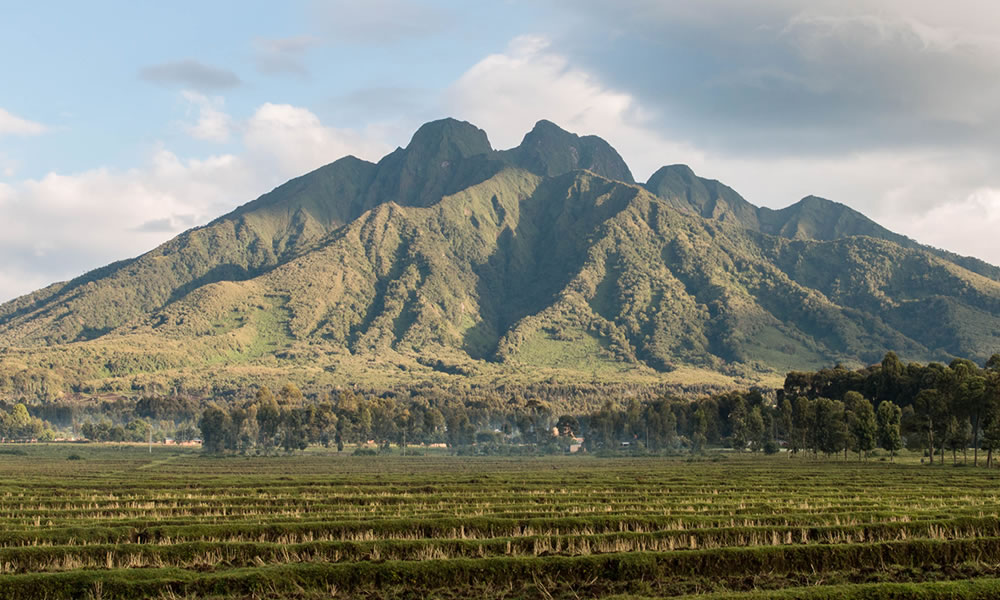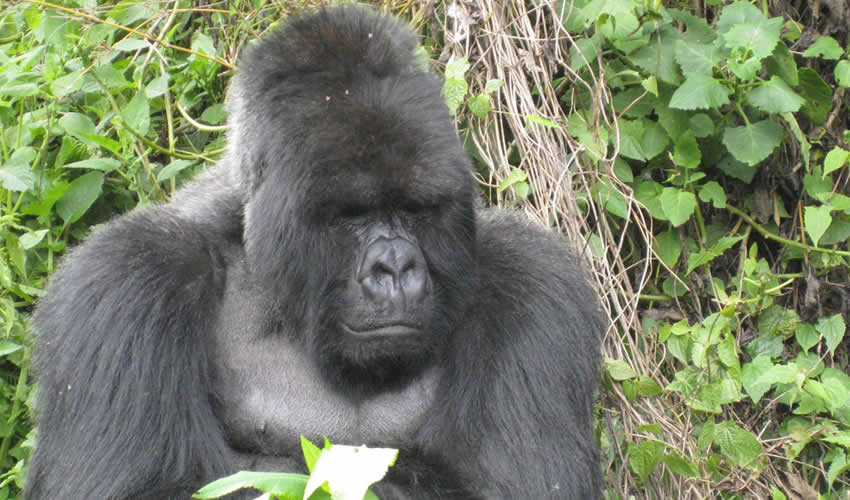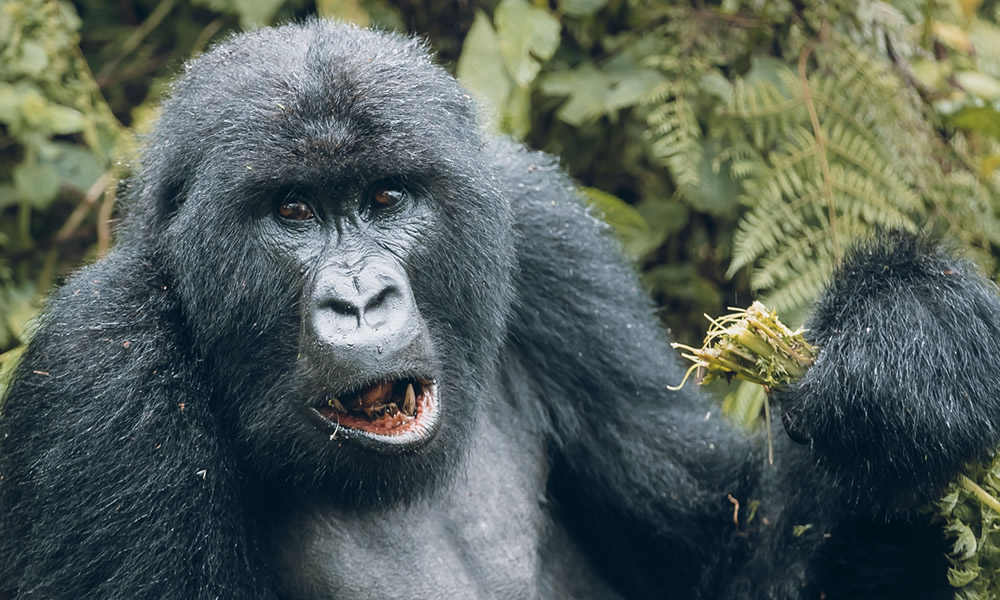Mount Bisoke Hiking Experience in Rwanda

Mount Bisoke Hiking Experience in Rwanda is an exciting and audacious activity that is not limited to experienced hikers. Depending on how frequently the hiking party stops to rest, the hike to the peak takes six hours, and the return trip takes two or more hours. Skilled climbers can reach the summit in three hours. Trekkers should be in reasonable physical shape and prepared to confront the muddy routes, prickly foliage, and stinging insects, especially during the rainy season, even if a climb up Mount Bisoke is regarded to be less taxing. Hikers should be prepared for a variety of factors, including temperature and oxygen levels. Because of the exceptionally low temperatures, the ascent can become very exhausting, requiring frequent breaks.
Mount Bisoke’s Ngezi Crater Lake is one of its most notable features. This breathtaking natural wonder is located inside the caldera of the volcano and heightens the mountain’s attraction. Enthralling sweeping views of the surrounding lush rainforests, undulating hills and nearby volcanic peaks may be seen along the trek to the summit. In addition to being aesthetically pleasing, Mount Bisoke is very important for research and conservation initiatives. Numerous threatened species can be found on the mountain, most notably the critically endangered mountain gorillas. The area’s conservation efforts help to protect both these amazing animals and their delicate environment.
Numerous issues need to be addressed, such as muddy trails that exacerbate with heavy rainfall. You might also have to contend with prickly plants and insects that sting. Mental readiness is the most valuable asset when climbing in the mountains. Being tough, tenacious, and downright stubborn might be advantageous, but mental readiness is essential. It is a known fact that Mount Bisoke is very steep, and that temperatures and oxygen levels can drop significantly when ascending. High altitude, though, won’t matter if you’re emotionally and physically prepared. In case you are not an experienced mountain climber, it is advised that you begin preparing by engaging in long-distance work.
Every hiker congregates at the Volcanoes National Park headquarters for a briefing prior to ascending Mount Bisoke. In the Volcanoes National Park, briefings are held in the morning at the same time as people who have come to monitor gorillas. You will register at the park headquarters, receive a hiking stick, and be driven by armed rangers/guides to the starting location in your car. It is significant to note that before you can register for the activity, you will need to present your passport and your hiking permit from Bisoke. Since this is the last opportunity to use a real toilet, it is advised that you visit the loo before heading to the starting area.
Mount Bisoke Hiking Trails
With so many varied hiking pathways, hikers of all skill levels can have a different experience on Mount Bisoke. The trails differ in terms of length, difficulty, and the scenery they reveal as they go. The spectacular Ngezi Crater Lake may be reached by hiking the Bisoke Crater Lake Trail, which takes around 6-7 hours to complete. The multi-day Karisimbi Trail is another strenuous option that offers hikers amazing vistas of the neighbouring Virunga Mountains.
Hiking the modest Sabyinyo Trail is a great way to see wildlife and take in the expansive views. Every hiker on Mount Bisoke’s paths is guaranteed an amazing and enlightening experience, since each trail offers a unique collection of noteworthy locations and vantage views.
It takes about forty minutes to reach the starting point because of the bad path. The armed rangers are there to protect you from wandering wild animals and armed rebels who may have entered the park from the Democratic Republic of the Congo. There are few reports of rebel activity in the area, and assaults by animals on hikers are rare. The armed guards do not want to take any chances when it comes to visitors. Should something go wrong, there may be a lot of negative media publicity.
What to Pack for Mount Bisoke Hiking Experience in Rwanda
For a walk up Mount Bisoke to be both safe and enjoyable, the proper tools and equipment are essential. Start off wearing appropriate clothing for the changing weather on the mountain. Wear layers of clothing so you can modify your outfit as the temperature rises. It is advised to use a waterproof outer layer, an insulating mid-layer, and a moisture-wicking base layer. When travelling to higher altitudes, remember to bring sunscreen, sunglasses, and a hat to protect yourself from the sun’s rays.
Another important thing to think about is footwear. To provide stability and protection on the rough terrain, get yourself a pair of strong, waterproof hiking boots with ankle support. Keep extra pairs of moisture-wicking socks in your bag to avoid blisters and keep your feet dry. A well fitted rucksack is also necessary for transporting your equipment. Invest in a rucksack with various compartments, hip belts and adjustable straps to provide optimal weight distribution and convenient access to your essentials.
Hiking poles are another piece of equipment that is advised, particularly for individuals who might need more stability or support on the trail’s steeper sections. Rain gear is essential because Mount Bisoke weather can change quickly. Lightweight waterproof jackets and trousers are ideal. Finally, pack wisely by maximising both functionality and weight. Set aside supplies like water, food, a first aid kit, a headlamp, a map, and a compass in order of importance. Cut down on extraneous stuff to maintain a light and comfortable rucksack for the duration of the journey.
Numerous types of species can be found on the mostly forested slopes of Mount Bisoke. The most well-known are the mountain gorillas, who are in risk of extinction and have multiple groups living on the mountain. Numerous habituated groups on the volcano are utilised for the well-known tours that involve gorilla trekking. The golden monkeys, who inhabit the woods at the foot of the volcano, are the other primate on Mount Bisoke. The Virunga Mountains are located in the Albertine Rift Valley, home to both mountain gorillas and golden monkeys, which are native to the region. Buffaloes, duikers, and woodland elephants are among the other creatures.



